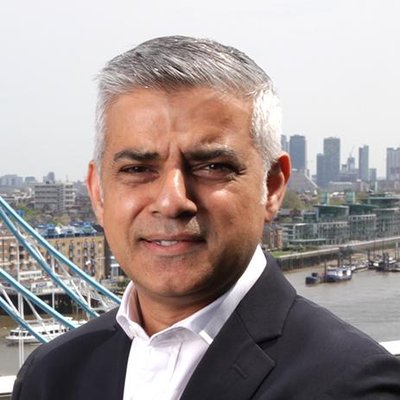Yvette Cooper – 2011 Speech to Police Federation Conference
Below is the text of the speech made by Yvette Cooper to the Police Federation conference on 17th May 2011.
It’s a great pleasure to be here. Can I thank Paul McKeever for the invitation to come to your conference.
And I want to take this opportunity as well to thank you and many of your members I have met since I became Shadow Home Secretary who have talked to me about the work you do and the challenges you face across the country.
From London to Leicester, Leamington to Leeds, West Midlands to West Yorkshire, the neighbourhood officers, the towncentre beat officers, traffic cops, public order police, detectives, counter terrorism officers, dog handlers and mounted police.
All doing their best to deliver good service in the face of new pressures.
For me, our Shadow Policing Minister Vernon Coaker and all our Shadow Home Affairs team, the perspectives of police officers across the country are extremely important.
And I want to thank Paul, Ian, the national and regional team and the reps across the country for the work you are all doing to stand up for your members. The Police Federation has always been straight with us.
In Government and out. You’ve always told us when you agreed with us, and also when you didn’t. Sometimes loudly.
Of course in thirteen years we didn’t always get it right. And we have to learn lessons from that.
On targets that lasted too long.
On force reconfiguration that people didn’t want.
And on arbitration too.
We didn’t get the pay process right in 2007, and you made clear the anger officers across the country felt at the time. Not least at this conference if I remember right.
And we did learn lessons from that. That’s why the following year, the Home Secretary and the Police Federation leadership worked hard together to get a three year deal that everyone could support.
But over thirteen years, the work you did, the extra 17,000 officers, 16,000 PCSOs and other staff we supported, the work together on prevention, on fighting crime, on counter terrorism, tackling anti-social behaviour, street crime, domestic violence.
It delivered results.
43% drop in crime.
Violent crime down.
Theft down.
Burglary down.
The risk of being a victim of crime at its lowest since the British Crime Survey and rising confidence in the police.
Because of the work you did.
That’s not the sign of a failing police service. It’s the sign of police officers committed to their communities and to the job.
And I know too this is about more than just fighting crime.
The traffic cops attending a bad crash. The search teams looking for an elderly man with dementia who wanders off. The officers working in schools. The officer I spoke to in West Yorkshire an hour after he’d faced a man threatening suicide from a third floor balcony – and had to take the potentially life or death decision when negotiations failed to send officers in to rush him and pull him back.
The police who have to pick up the pieces – the service of last resort when other things go wrong.
And I want to pay tribute to the police officers who have lost their lives in service, and those who have fallen since the Conference last met.
Detective Sergeant Terry Easterby.
Constable Sean Peter McColgan.
Constable Daniel Alastair Gibb.
Constable Scott Eastwood-Smith killed on Saturday on his way to work.
And from our colleagues in Northern Ireland, I woul d like to pay tribute to Constable Ronan Kerr, who was the victim of a terrible and cowardly murder, by terrorists who want to take the people of Northern Ireland and the peace process backwards.
People across the country have great respect for the risks you take and the job you do.
And that respect is important. It is an essential part of policing by consent – a founding principle of British policing centuries ago.
But that is why it is also so dangerous the way this Government is attacking the police now.
Paul is right to raise serious concerns about the campaign of denigration.
The persistent briefings and distorted information straight from Downing Street and the Home Office about the so called “police gravy train”.
The Prime Minister’s claim in the House of Commons that the police are “completely inefficient.”
You are right to be angry about attacks that are untrue, unfair and that undermine the work you do.
But there is a greater risk.
That kind of campaign of denigration undermines respect for the enforcement of law. It makes it harder on every estate, in every community, for the police to command the respect you need to do your jobs and to enforce the law.
You know I won’t always agree with you. You won’t always agree with me. We won’t always agree on the shape of reform. But I will always engage with you, and I don’t believe in undermining the job you do.
I do believe in continued police reform.
Not because I think policing is broken, but because it can be better, and we always should go further to do more for the sake of the communities we all serve.
Police officers I’ve spoken to across the country want to be part of a sensible, responsible debate about improving policing for the future.
But you are not punch bags. You are not material for cheap headlines. The Government should stop acting as if you are.
And the truth is the Government is not introducing sensible reforms. Quite the opposite.
I believe David Cameron and Theresa May have made the wrong decisions and the wrong judgements about the future of policing – and I fear it is communities across the country who will pay the price.
For a start they are cutting too far too fast and the police are among the hardest hit.
Overall the scale and pace of deficit reduction is being driven by politics not by what’s good for the economy. It’s hitting growth, hitting jobs and will end up costing us more.
I also fear that policing is among the worst hit. The Home Secretary failed to fight her corner in the Spending Review. And now we are seeing the results.
20% cuts with the steepest cuts in the first few years.
12,500 police officers will be lost, and thousands more support staff too.
Of course the police can and must make savings. But let’s be clear about the difference in our plans.
Labour’s plans were set out by Alan Johnson; a 12 per cent cut over the course of the Parliament, which the HMIC have said could be achieved without hitting frontline services and which Alan believed would have given chief constables the cash to maintain the numbers of police officers and PCSOs.
So yes, we would have cut £1 billion over the course of the Parliament and that would have been tough.
But the Government is cutting £2 billion, with the steepest cuts in the first few years.
The Home Secretary is still in denial.
Three times she was asked on Sunday whether 12,000 police officers would go. Three times she refused to answer and to take responsibility for the cuts.
Time and agai n Ministers tell us that the frontline won’t be hit. They clearly haven’t talked to the frontline officers in Warwickshire forced now to cover back office jobs, the neighbourhood officers being cut in London and Birmingham, the domestic violence units and traffic units across the country that are being squeezed.
Time and again they tell us that it is for Chief Constables to decide.
Yet the truth is Chief Constables are being put in an impossible position by the scale and pace of the cuts.
They tell us cutting bureaucracy will solve it. I welcome more work to cut bureaucracy. But they shouldn’t pretend it’s going to compensate for 12,000 officers lost. It is playing the police and the public for fools.
Government ministers are completely out of touch with the reality in police forces across the country.
As for the A19s. You couldn’t make it up.
A Government that says on the one hand everyone has to work for longer, and on the o ther hand, those who want to keep working have to go.
Officers forced to retire, then asked to come back and do the same job as specials instead.
That’s David Cameron’s Big Society.
But the greatest insult of all is that now we know it won’t even save any money.
The lost tax, national insurance and pension contributions means it will end up costing the taxpayer more.
But it’s not just the cuts. The Home Secretary is undermining leadership and morale with her cack-handed approach to reform.
Bringing in American style elected police chiefs which concentrate power in the hands of one politician with no checks and balances is putting centuries of impartial British policing at risk.
The uncertainty over commissioners and the chaos surrounding the national policing framework is making it harder for forces to make long term plans.
And the handling of pay and pension reforms – briefing and pre-empting the Winsor and Hutton reviews – has left police morale at an all time low.
But perhaps most important of all, the Government is making it harder for the police, the courts, and local communities to fight crime.
Youth services, family intervention projects and other prevention programmes cut back.
ASBOs abolished.
DNA use curtailed.
CCTV in a bubble wrap of bureaucracy.
Dangerous loopholes in child protection.
Chaos over the National Crime Agency, CEOP and the SFO
Sentencing reduced at the same time probation is cut back.
And now their latest plan to let criminals do half the time just for pleading guilty, no matter how serious the offence. That won’t fight crime and it’s not justice either.
They used to be the party of law and order once. Not now.
These are the ingredients for a perfect storm. Fewer police, fewer powers, weaker prevention, weaker sentencing, no checks and balances.
And no vision for the future.
No strategy to keep crime falling.
No bigger picture.
Through the Police Federation, you have called for a Royal Commission on the future of policing to turn things round.
You know the next election may not be for 4 years
I can’t promise you a Royal Commission after that – to pronounce in five or six years time. It’s too long to wait.
But I do think there is a strong case for an independent review – be it Royal Commission or other form of overarching review to start now.
On clearing up the mess of the current reforms.
On the challenges for the future – from counter terrorism to cyber crime.
On ensuring the police are flexible enough to respond, promoting not stifling the talents of officers and staff.
On putting communities at the heart of the fight against crime and delivery of justice.
On increasing accountability, transparency, checks and balances and remedies when things go wrong.
And on how, in the modern world we maintain what is precious about British policing – it’s impartiality, international reputation , sense of public service and policing by consent.
The Government should set up that independent review now and they should talk to you about how it should be done. And if they won’t we will.
Policing is too important to get it wrong.
For thirteen years, I believe Labour’s approach – “tough on crime, tough on the causes of crime” – delivered results. Now the Tory-led Government is putting that progress at risk.
Officers on the frontline say they fear crime will go up as a result.
And it is victims and communities across the country whose lives are wrecked and who pay a terrible price when things go wrong or when justice is denied.
We have to do everything we can to stop that happening.
We are determined to do everything we can to force the Government to change course.
They’ve done it before.
They’ve paused on the NHS.
They’ve u-turned on forests.
If they can do it for trees, they can do it for police and crime.
That’s why we will keep up the pressure in Westminster and across the country.
Along with hundreds of thousands of people across the country already raising their voices in alarm.
The fight against crime, the work for safer communities and the pursuit of justice are too important to put at risk.



